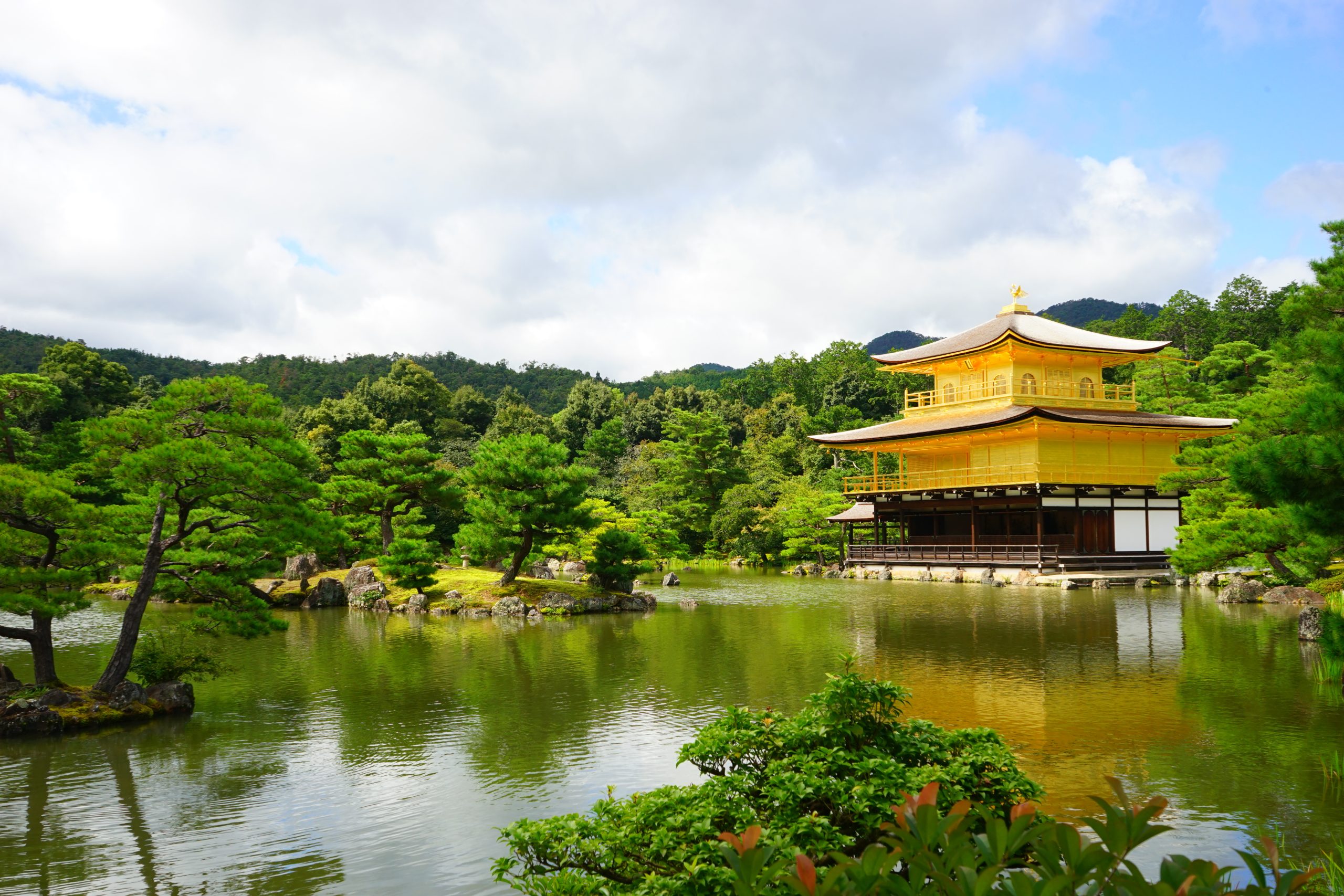Location
Kyoto is located in the Kansai region of Japan, in the central part of the island of Honshu. It is situated in the southern part of the Kyoto Basin, surrounded by mountains on three sides, including the Higashiyama, Kitayama, and Nishiyama mountain ranges.
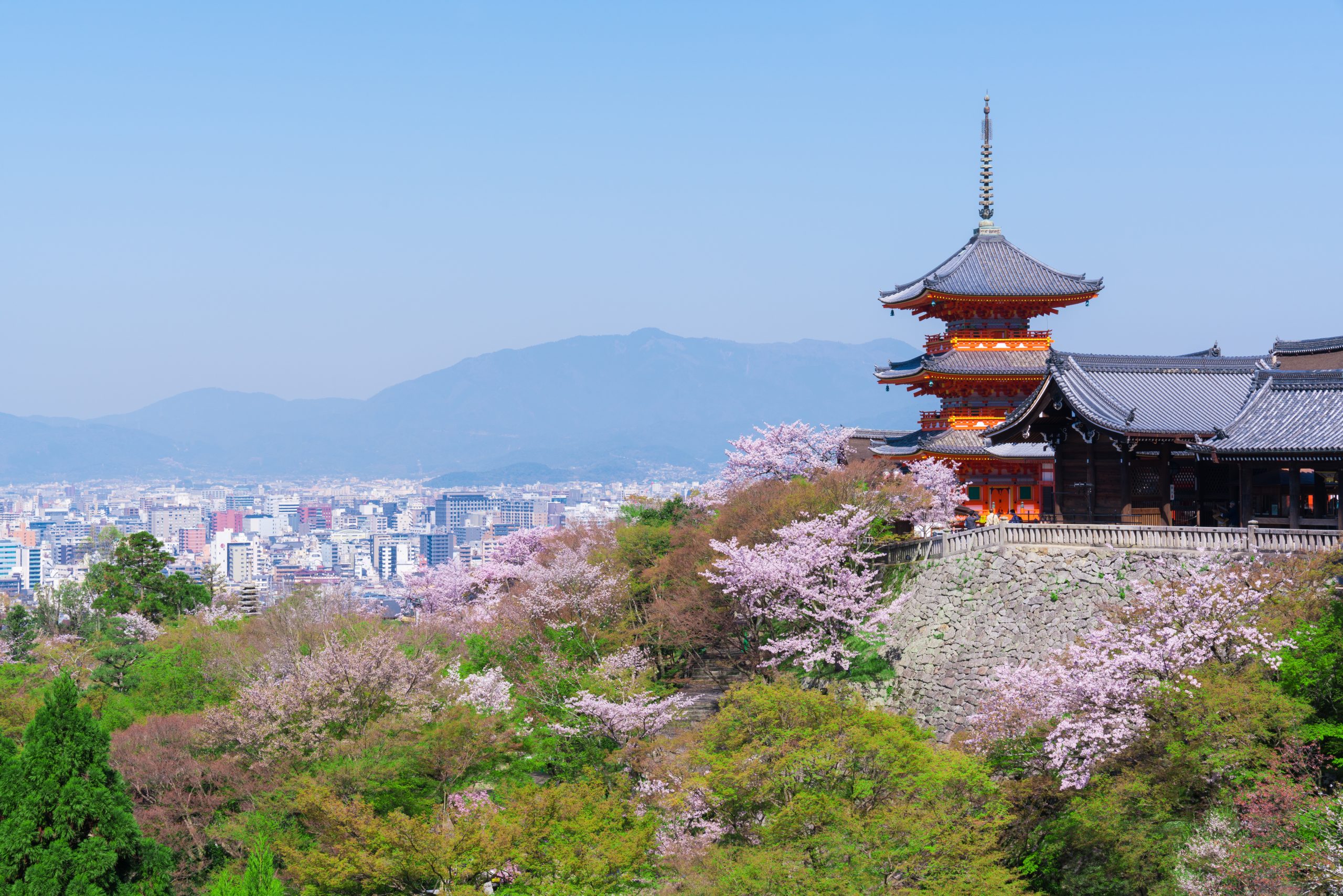
- The travel time from Kansai International Airport to Kyoto Station using the express trains “Haruka” or “Kodama” is approximately 1 hour 20 minutes to 1 hour 30 minutes.
- The travel time from Tokyo to Kyoto Station using the fastest Shinkansen “Nozomi” is approximately 2 hours 20 minutes to 2 hours 40 minutes.
- In Kyoto, transportation by car is common, and buses are well developed.
Rivers
The Kamo River runs through the eastern part of Kyoto, dividing the city into two sections: the historic Higashiyama area to the east and the modern downtown area to the west. The Katsura River flows through the western part of the city.
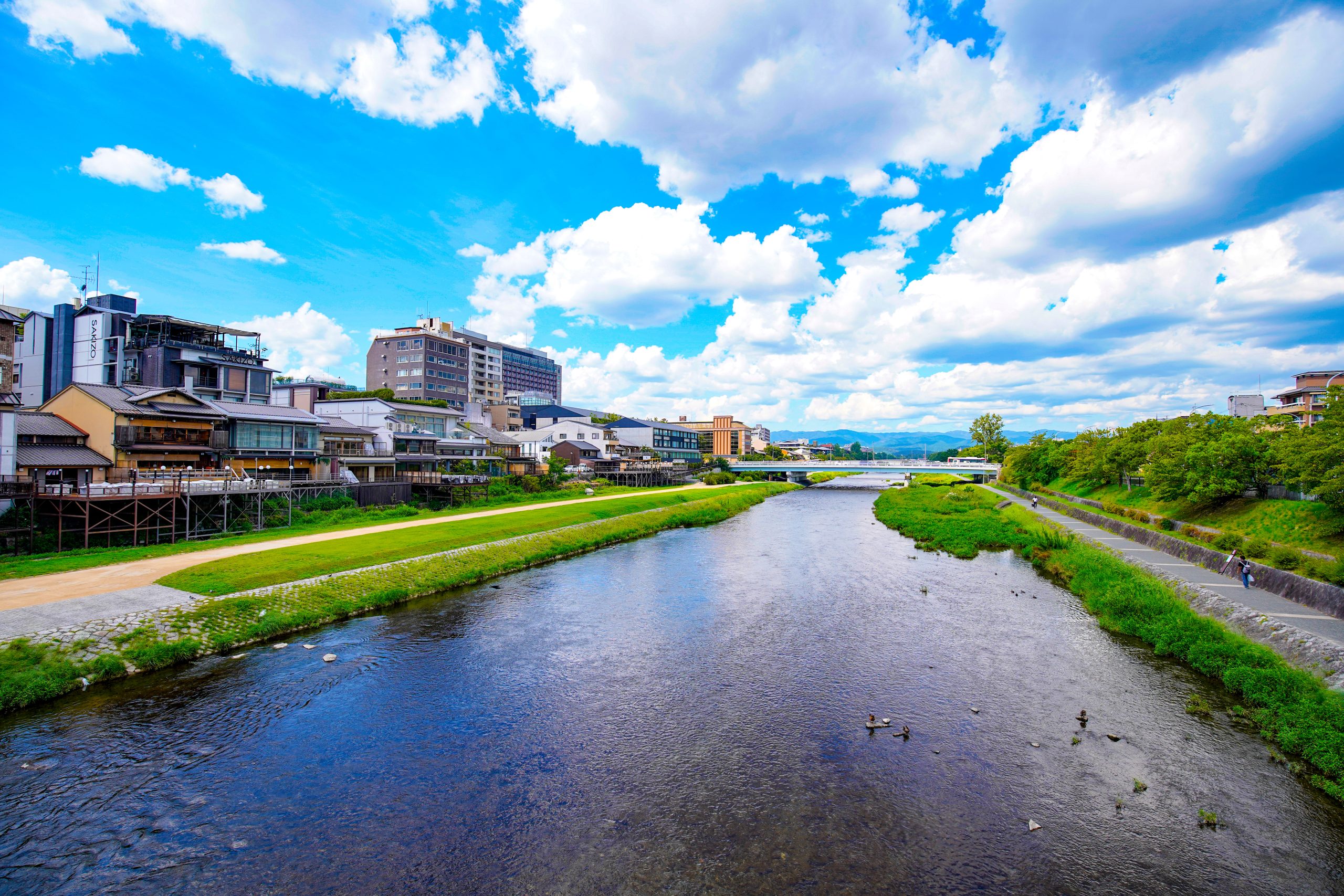
Climate
Kyoto has a humid subtropical climate, characterized by hot, humid summers and cool, relatively dry winters. It experiences four distinct seasons, with cherry blossoms in spring and colorful foliage in autumn being particularly famous.
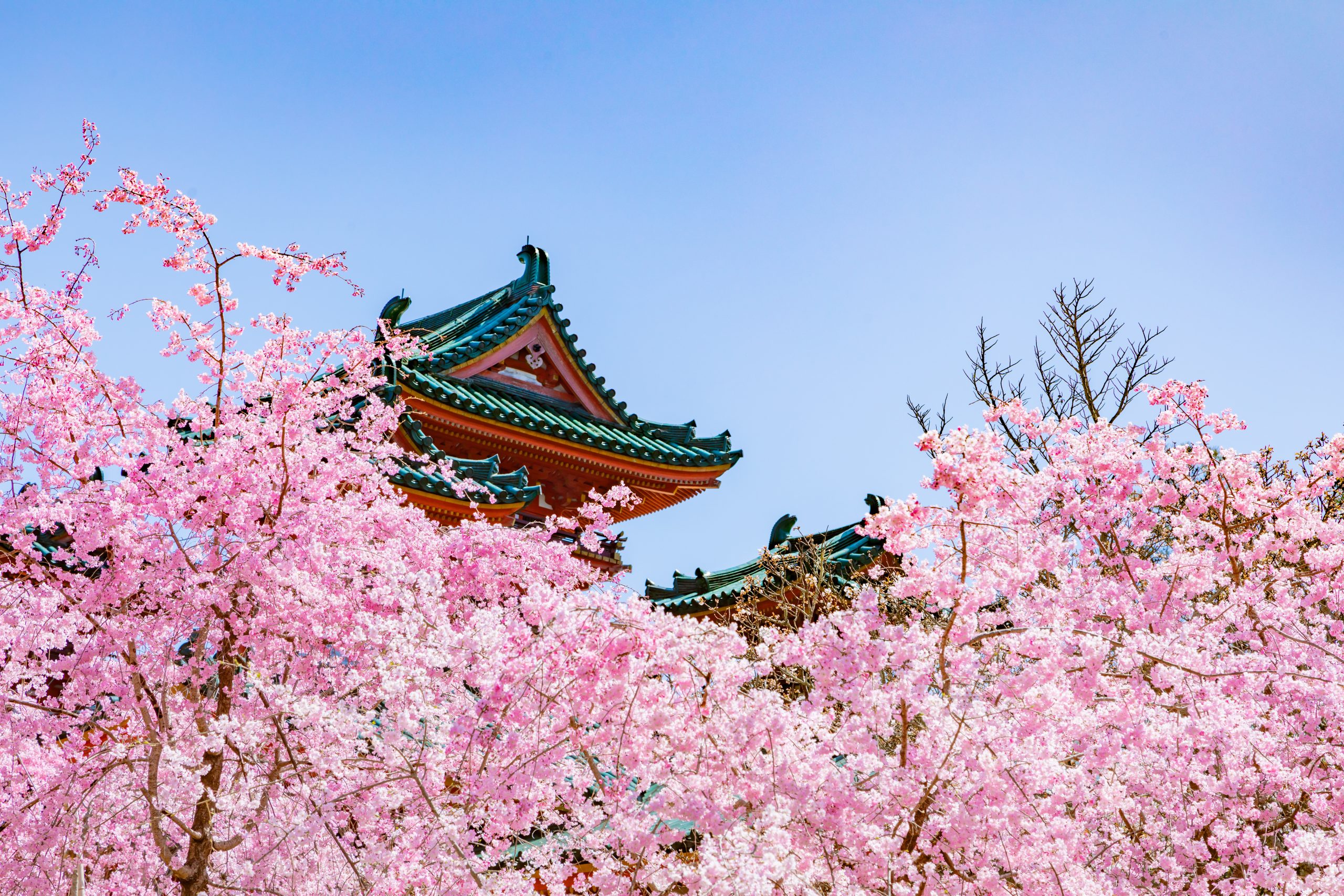
Topography
The topography of Kyoto is diverse, ranging from flat plains in the central basin to hilly terrain in the surrounding areas. The city’s landscape is marked by numerous temples, shrines, and historic landmarks nestled among the hills and valleys.
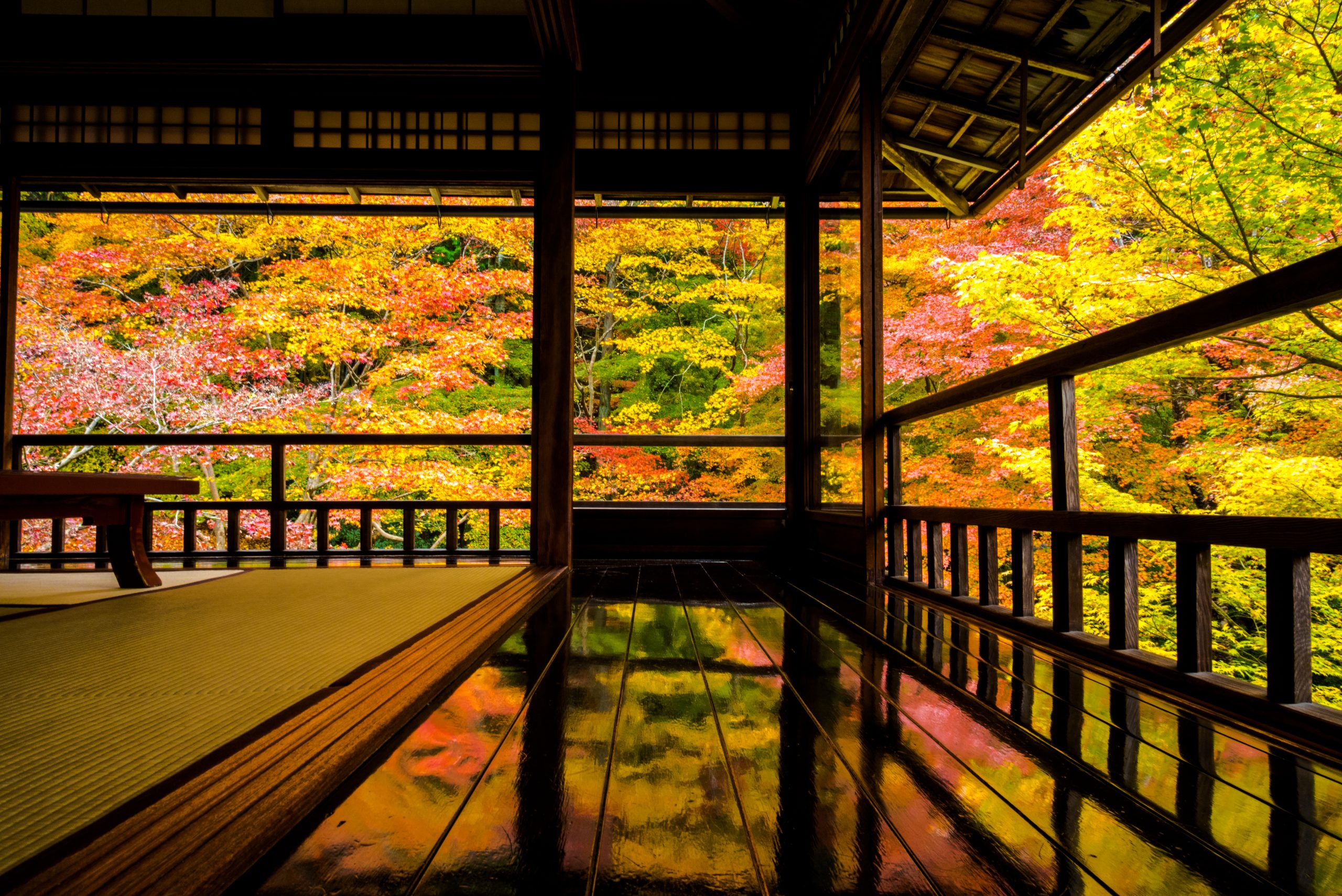
Surrounding Prefectures
Kyoto is bordered by several prefectures, including Osaka Prefecture to the southwest, Nara Prefecture to the southeast, and Shiga Prefecture to the northeast. It is approximately 45 kilometers (28 miles) north of Osaka and 60 kilometers (37 miles) northeast of Nara.
Cultural and Historical Significance
Kyoto’s geographical location, nestled among mountains and rivers, has contributed to its cultural and historical significance. The city served as the capital of Japan for over a thousand years and is renowned for its well-preserved historical sites, traditional architecture, and scenic beauty.
